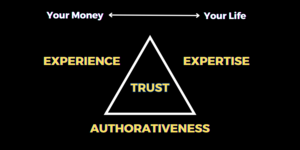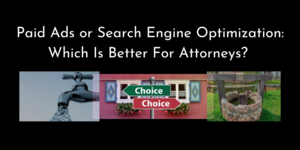Trust is key when finding and building a relationship with prospects (and customers). When working to build Trust, two keys are Consistency and your Voice. In an earlier post, I reviewed the importance of Consistency.
In this one, we review the influence your Voice has to the Trust relationship. Voice relates to what you say and how you say it. Done right, a Prospect or Customer sees you as more like them. In social or romantic relationships, we perceive this as familiarity with what might actually be a stranger or acquaintance. That familiarity supports Trust.
If you have heard the glee and pride with which people say “I Told You So”, you have first-hand experience for how humans love to be “right”. It has been said that Most people would rather be Right than Rich!
Utilize these three aspects when developing your Voice:
- Agree with what they THINK
Opinions are everywhere! We have all heard the old joke comparing Opinions to a particular body part. The key is in the punchline that Everybody has one & no one cares about anyone else’s. Based on this alone, we see why agree with your Prospect / Customer is so powerful: Everyone loves to have others agree with them.
- Validate what they KNOW
Today, people are more convinced of what they “know” more than ever. If you can communicate by validating things that they already know, they are more likely to listen to other things that you have to say.
Note: The negative aspect to this is found when people assuredly “know” things that are simply not true. Validating things that you yourself do not believe is a form of hypocrisy and a poor foundation for you to build your Voice. You can choose to do so, but eventually this dishonesty will damage you, your audience, and your credibility. Do not do it!
- Mirror what they FEEL
Our strongest Voice in building Trust comes not from agreeing or validating, but mirroring your Prospect or Customer’s feelings. Our feelings are often much more influential than what we think or know. Communicating by expressing shared feelings can be your most effective asset.
This is often expressed by the axiom that Facts tell; Stories sell!
Which is more effective? Describing the design aspects of a Mustang engine or the excitement that you feel driving down the coastline with the convertible top down. Our feelings and the emotions that they elicit often guide our actions and behaviors much more than what we think or know. Never forget this in communication with those outside (and inside) your organization.
Caveat
Regardless of whether agree, validate, or mirror, we must address the how Voice can work differently for Traffic and Conversions. Often, disagreement and debate can draw more attention. The proliferation of voices expressing extreme views and “shock jocks” highlights this reality. However, if your focus is getting attention, then you must ensure that Traffic (not Conversions) leads to revenue. For those whose revenue comes from Conversions, an agreeable Voice that promotes Trust is the better long-term choice. It is often a slower model for growth, but leads to better results in most cases.


